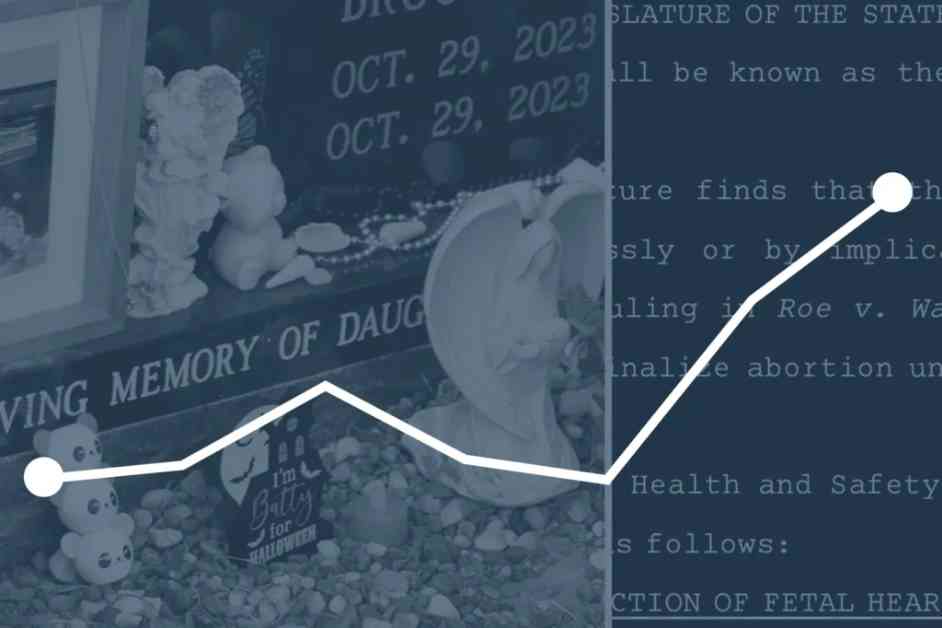A Texas abortion ban implemented in 2021 has had a profound impact on the safety of pregnant women, particularly in cases of pregnancy loss. A recent analysis conducted by ProPublica revealed a significant increase in sepsis rates, a life-threatening condition caused by infection, among women who were hospitalized after losing their pregnancies in the second trimester.
The study found that the rate of sepsis rose by more than 50% for women in this situation, with the highest risk observed in patients whose fetus still had a heartbeat upon arrival at the hospital. Tragically, there were instances where miscarrying women died of sepsis in Texas due to delays in receiving necessary treatments. These delays stemmed from the fear of violating the state’s abortion ban, which imposed severe penalties for those providing abortion services.
As a result of the abortion ban, the number of pregnant and postpartum women who died in Texas hospitals increased significantly compared to pre-pandemic years, leading to a rise in the state’s maternal mortality rate while the national rate declined. The data analyzed by ProPublica also raised concerns that similar patterns of life-threatening complications may be occurring in other states with comparable abortion bans.
Expert Insights and Concerns
Dr. Lorie Harper, a maternal-fetal medicine specialist in Austin, expressed her concerns about the dangerous delays in care resulting from the abortion ban. She and several other maternal health experts highlighted the challenges faced by healthcare providers in determining what constitutes a medical emergency under the ambiguous definitions outlined in the law. Despite the provision for a “medical emergency” exception in the ban, there is uncertainty and debate surrounding its application in clinical settings.
The lack of clarity in the law has led to situations where medical professionals are hesitant to intervene promptly, even in cases where patients are at risk of developing sepsis. The ban has created obstacles in following evidence-based guidelines for managing second-trimester miscarriages, putting women’s lives at risk due to delays in necessary treatments. The stories of individuals like Josseli Barnica and Nevaeh Crain underscore the devastating consequences of these delays, prompting calls for legislative amendments to ensure timely and appropriate care for pregnant women.
Implications and Calls for Action
The findings from ProPublica’s analysis have sparked discussions among Texas legislators about potential amendments to the abortion ban. Prominent figures, including Lt. Gov. Dan Patrick and State Sen. Bryan Hughes, have acknowledged the need for clarifications in the law to prevent healthcare providers from facing legal repercussions when addressing life-threatening situations. The potential changes aim to prioritize the health and safety of pregnant individuals by allowing timely interventions to prevent complications like sepsis.
Despite the growing recognition of the detrimental effects of the abortion ban on maternal health, challenges remain in overturning restrictive laws and ensuring access to essential healthcare services for pregnant women. The ongoing debate surrounding reproductive rights and maternal care underscores the need for comprehensive legislative reforms that prioritize patient safety and well-being.
ProPublica’s investigation sheds light on the complex interplay between abortion restrictions, maternal health outcomes, and healthcare delivery practices. By amplifying the voices of those affected by these policies, the study aims to drive meaningful change in the healthcare landscape and advocate for policies that safeguard the lives of pregnant individuals across the country.















